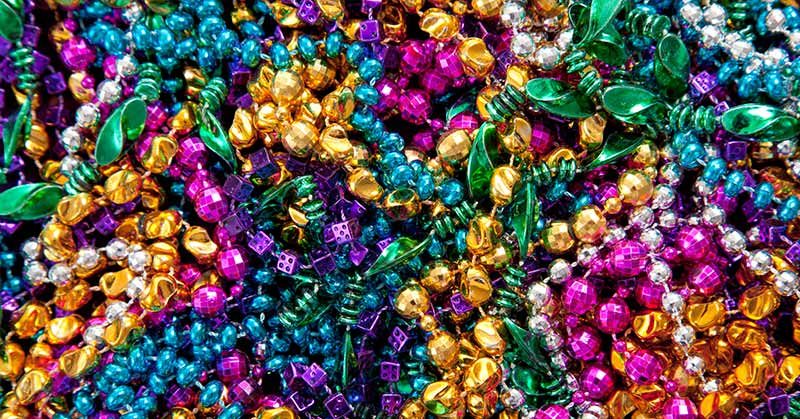Many of us shop at the Dollar Store because it’s inexpensive and convenient. In one place you can find birthday cards, wrapping paper, decorations, kitchen supplies, and much more. The best part is, all of it can be yours for mere pocket change. Unfortunately, some of these items come at a cost. A health cost, that is, and some of the most toxic items at the dollar store are also the most popular.
An Unnerving Report: Toxic Items At Dollar Stores

Consumer testing group Healthy Stuff in conjunction with the Campaign for Healthier Solutions released the Dollar Store Report. They named the report “A Day Late and a Dollar Short”.
Researchers tested 164 products from four of the largest dollar store chains in America- Dollar General, Dollar Tree, Family Dollar, and 99 Cents Only. They made the following observations:
- 133 products (81 percent) contained at least one hazardous chemical above levels of concern. 49 percent contained two or more.
- 63 products (38 percent) contained vinyl plastic.
- Researchers tested 38 of the vinyl plastic products and found that twelve of them (32 percent) contained toxic phthalates above the Consumer Product Safety Commission (CPSC) limit for children’s products.
Examples of chemicals that researchers found in some products included antimony, arsenic, bromine, chlorine, lead, mercury, and tin [1].
Read More: Is Dawn Dish Soap Toxic? Here’s How To Spot Chemicals In Your Soap
The 10 Most Toxic Items at the Dollar Store

So which products are the worst offenders? The following is a list of the ten most toxic items at the dollar store, along with what you should buy instead.
1. Electronic Accessories

According to the report, items such as extension cords, USB cords, and cellphone charger cables tested high in chlorine [1].
This means that those items were likely made from polyvinyl chloride or PVC. As the name suggests, PVC contains vinyl chloride, which is a dangerous chemical that may cause cancer. Studies as far back as the 1980s have shown that people who worked with vinyl chloride and PVC had a higher instance of cancer. Those people also had a higher cancer mortality rate [2].
Instead, purchase these items from electronics stores.
2. Plastic Kitchen Utensils
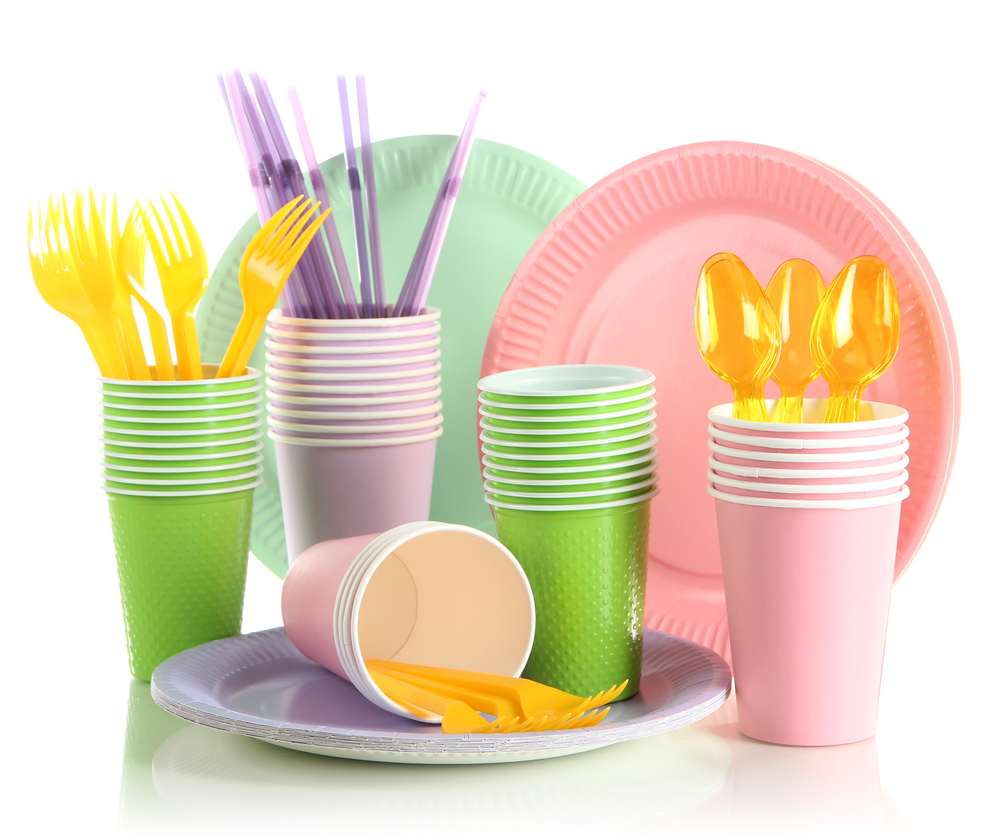
If you’ve ever purchased one of those black spoons or spatulas from the dollar store, you may want to find a replacement. These items may contain high levels of bromine, a component in brominated flame retardants (BFRs).
BFRs may cause cancer, and birth defects, and might impair brain development [3]. Although they have been banned in the United States, they can still make their way into products that are made with recycled plastic.
Instead of purchasing these items, opt for stainless steel utensils instead. Not only will they be healthier for you and your family, they’ll last longer as well.
3. Flannel-Lined Table Covers

The report found these brightly-colored tablecloths contained high levels of lead. Lead is a toxic metal that can have serious health effects, particularly in children. Lead exposure could affect the development of a child’s brain and nervous system, reduce their IQ, and cause behavioral problems.
For adults, lead exposure can increase their risk of high blood pressure and cause kidney damage. If a pregnant woman is exposed to the metal, it could cause miscarriage, stillbirth, premature birth, and low birth weight [4].
Your best bet is to use a washable/reusable cloth table cover instead. That is better for your health and the environment.
4. Christmas Garlands

Do you know those shiny, metallic garlands that grace the dollar store shelves every holiday season? You’re better off leaving them there. These items also tested high in bromine [1].
Instead, look for paper garlands, or go the old-fashioned route and try making your own out of popcorn and cranberries.
5. Silly Straws

These fun-shaped straws tested for high levels of Di(2-ethylhexyl)phthalate (DEHP). This is a manufactured chemical that is a common component in plastics to make them flexible.
Rats and mice who ate high levels of DEHP over a long period of time developed liver cancer. When it comes to humans, however, scientists do not know how exactly DEHP exposure affects the body [5]. Your best bet is to stay away from these straws, and opt for a reusable straw or a paper straw instead.
6. Adhesive Bath Mats
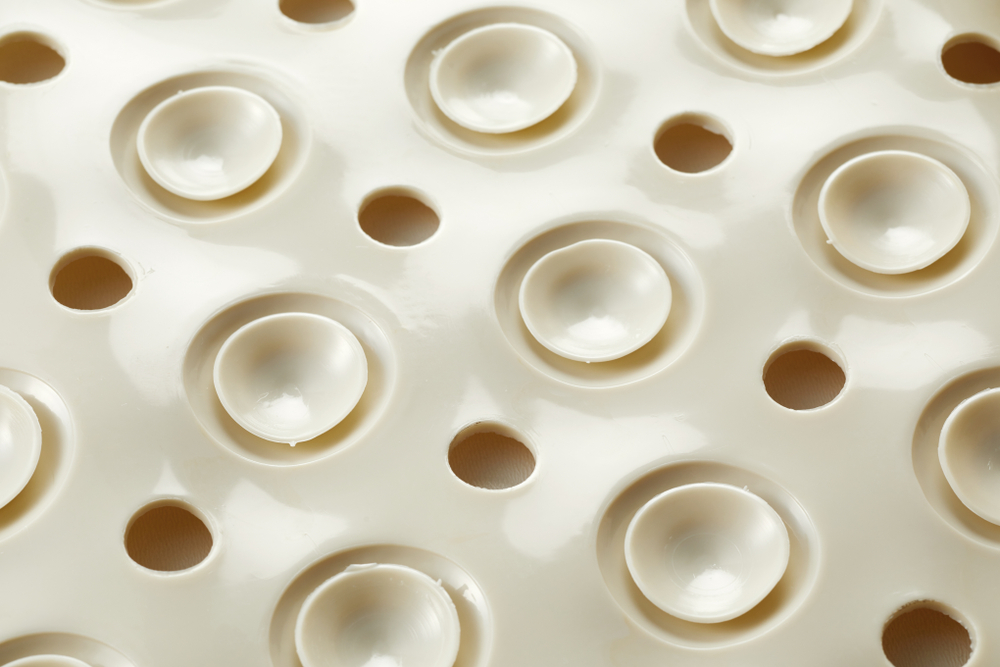
These mats, and most other vinyl floor coverings you can find at the dollar store, tested for high levels of both phthalates and chlorine. The biggest issue with this is that phthalates are present in so many products. This could cause a buildup of exposure from multiple sources, which could cause health problems [1]. To prevent this, avoid buying anything that contains vinyl.
7. Christmas Lights

The problem here is not with the lights themselves, but rather with the string that connects them. This string contains high levels of bromine and chlorine, which, as we already know, may increase your risk of cancer [3].
“Restrictions of Hazardous Substances” (RoHS), is a European toxics standard that limits BFRs in some products. When you’re purchasing Christmas lights, check the label to make sure that it is RoHS-compliant.
8. Children’s Jewelry
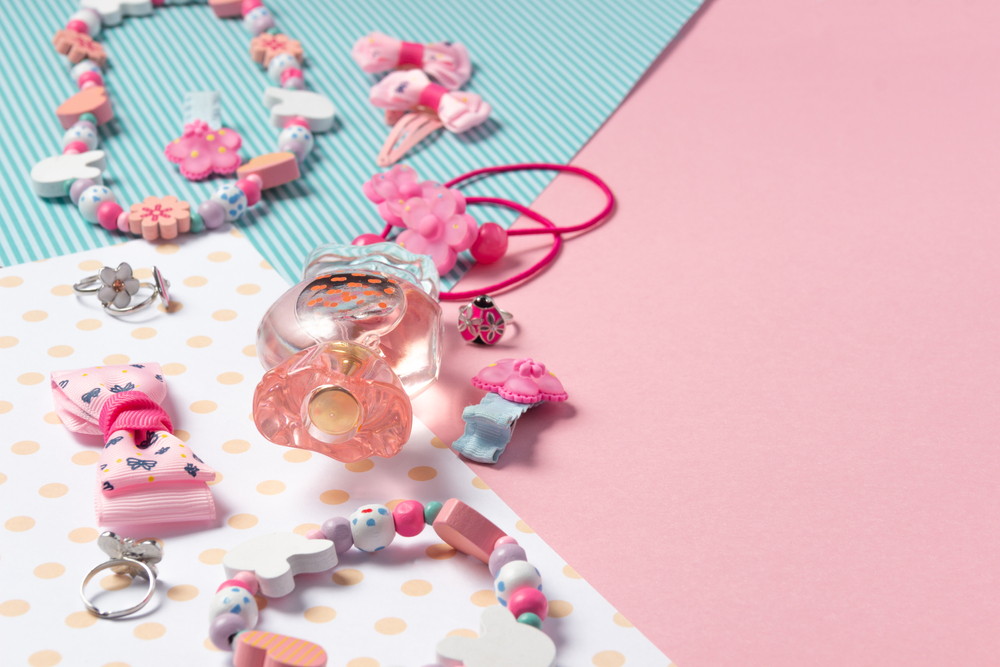
The report found that earrings from the dollar store contain high levels of lead [1]. If you’re purchasing jewelry for your child, avoid the dollar store. Although it can be more expensive, buying something of a higher quality, like stainless steel, will be better for their health. They are also less likely to have a reaction to the jewelry.
9. Metallic Beads
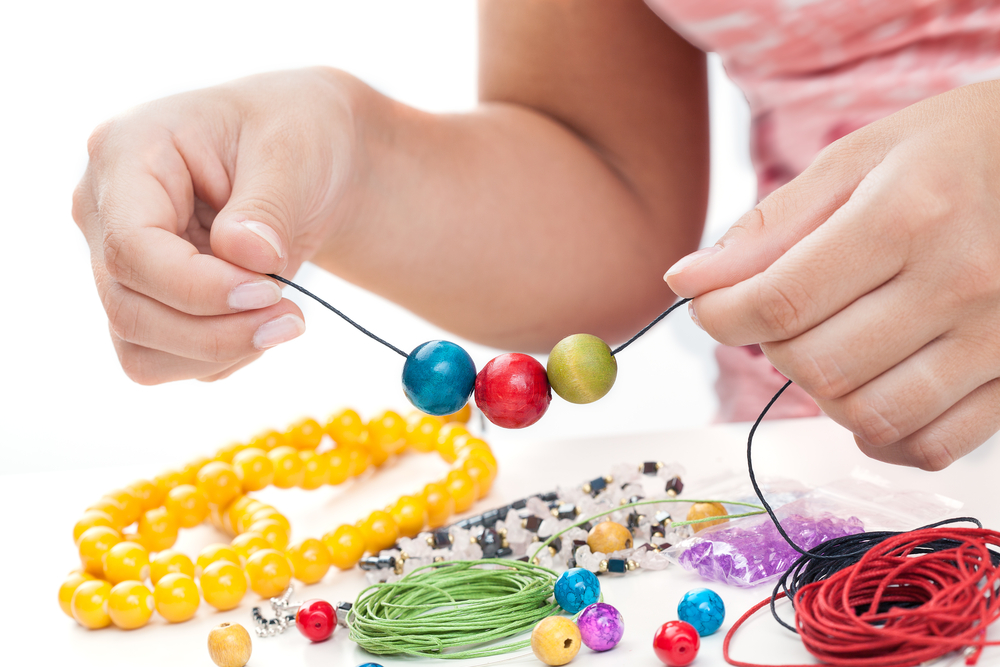
Those shiny, colorful strings of beads that are popular at Mardi Gras celebrations are no party. These items tested for high levels of bromine [1].
10. Window Clings and Wall Stickers

These window and wall stickers may be fun, but they often contain PVC. The American Public Health Association (APHA) has described PVC as one of the most hazardous of plastic materials. The organization also stated that children are more vulnerable to hazardous chemical exposure because they are still developing [6].
Read: PFAS are in the US Food Supply, here’s why you should care
Have Dollar Stores Made Any Progress on these Toxic Items?
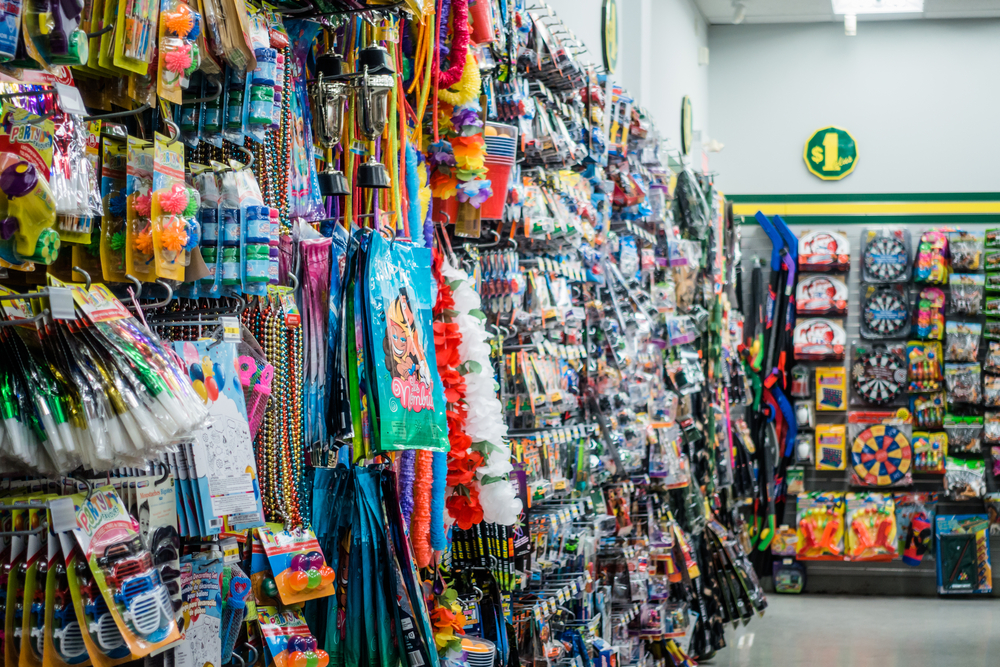
That report was released in 2015, so has there been any progress over the last five years? The good news is, yes. In 2019, Dollar Tree, one of the biggest dollar store chains in the United States, signed on to a program to phase out heavy metals and harmful chemicals from their products. To do this, they’re working with the Chemical Footprint Project (CFP).
The CFP measures a company’s chemical footprint and tracks its progress toward using safer products. The company has to formally submit the data to the program, which establishes a baseline score.
There was more pressure on dollar stores to clean up their products, because of who they service. The bulk of their clientele are low-income communities of color, which turns the problem into a social issue.
Social Justice

Alexandra McPherson is a project manager for the Investor Environmental Health Network who encourages companies to join the project. She said that The Dollar Tree was a case that they felt was also an issue of social justice.
“Are people who can’t afford organic products inadvertently being sold the most toxic ones?” she asked [7] However, in June 2020, the CHS was deeply disappointed when Dollar Tree did not provide any concrete updates to its shareholders about its commitment to phasing out seventeen chemicals of concern.
“We are deeply disappointed that Dollar Tree refused to answer our important questions during today’s shareholders meeting,” said José Bravo, National Coordinator of the Campaign for Healthier Solutions. “The questions that the Campaign for Healthier Solutions asked pertained to the health and security of Dollar Tree’s customers and workers. This refusal to answer investors is an affront to our communities of people of color and low-income residents. Dollar Tree is serving the underserved on a toxic plate.” [8]
Dollar Store Needs to Improve
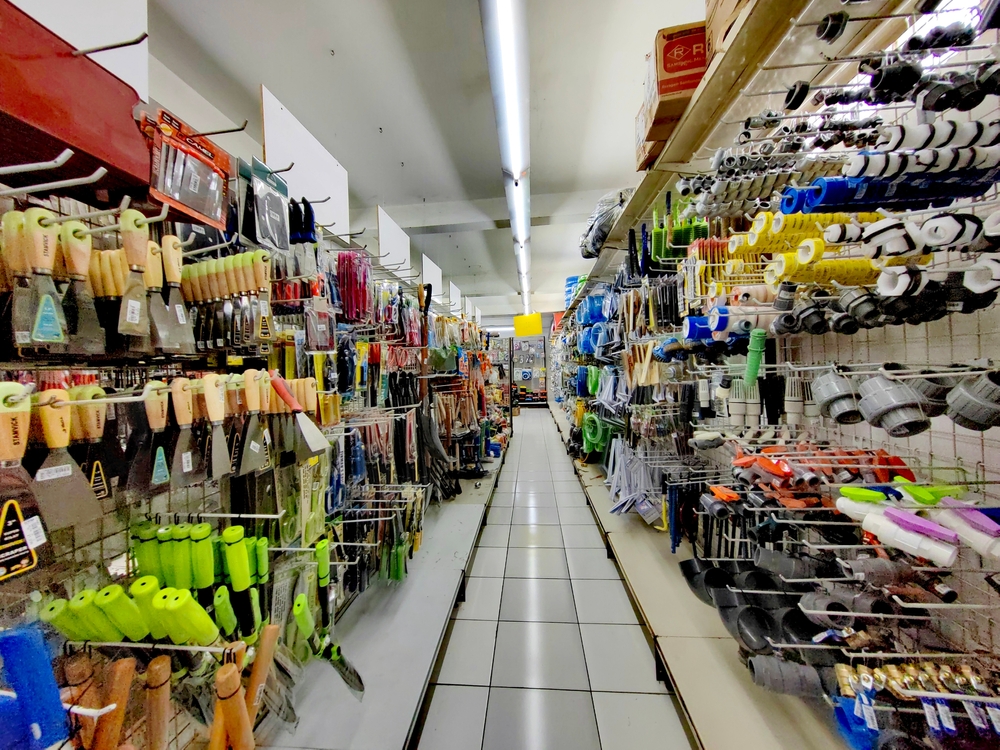
As more and more people are turning to dollar stores because of financial stress during COVID-19, these stores need to do a better job of protecting their customers. Currently, they are not making the progress that we need to see in order to know that their products are safe to purchase.
For this reason, avoid shopping at dollar stores if you can help it. At the very least, try not to purchase plastic products that could be contaminated with toxic chemicals. Instead, look for more natural materials like steel, paper, or wood. Toxic items at dollar stores need to go.
Read More: Woman Disabled From Fluoroquinolone Toxicity After Use of Common Antibiotic
- https://ej4all.org/assets/media/documents/Report_ADayLateAndADollarShort.pdf
- https://www.ncbi.nlm.nih.gov/pmc/articles/PMC1009231/
- https://www.ncbi.nlm.nih.gov/pmc/articles/PMC1241790/pdf/ehp0112-000009.pdf
- https://www.scielosp.org/article/bwho/2000.v78n9/1068-1077/
- https://www.atsdr.cdc.gov/phs/phs.asp?id=376&tid=65
- https://www.apha.org/policies-and-advocacy/public-health-policy-statements/policy-database/2014/07/08/15/13/reducing-pvc-in-facilities-with-vulnerable-populations
- https://www.nationalgeographic.com/environment/2019/05/dollar-stores-shifting-sales-potentially-dangerous-plastics-phthalates-bpa/
- https://comingcleaninc.org/latest-news/in-the-news/release-dollar-tree-must-do-more-to-eliminate-hazardous-chemicals-from-its-stores-environmental-justice-advocates-say
